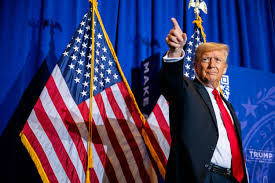Many on social media found this reply unsatisfactory after Mr Raab's sour letter of resignation, and also duplicitous. Mr Dowden referred to the report of Adam Tolley KC, who had investigated the bullying charge over five months, as an 'interpretation', a term they took as more government double-talk to imply there was something defective if not dismissible about the findings.
In the world of politics, there are always good grounds for this alternative 'interpretation', of course. But let us consider if an honest answer to the question is possible at all, given the context: a loaded question, no doubt justifiable but loaded nonetheless, on a popular and widely reported TV show; Mr Dowden's personal standards under the spotlight as well as his professional duty to his party; and the readiness of opponents to pounce on his every word as evidence of the basest villainy regarding both.
Still Mr Dowden might have started a genuinely honest answer along these lines: "Look, I know I am here to answer questions, not to ask them, but I really can't answer that question. It'd be terribly arrogant of me, grossly judgmental, to do so - lacking in ordinary common decency expected of us all. May I ask - not to be evasive or argumentative - would you comment in public on the character and conduct of some colleague of yours in your field, journalism, on occasions you were not even present? Would anyone, in any field? No one, not just me, can discuss a colleague in that way."
That may carry weight as an honest answer? Over to you.
Along with which Mr Dowden might be thought to have been fair in what he actually said. He pointed out there had been a long and careful inquiry; he raised no question as to the independence or professional competence of the investigation; and ended by saying Mr Raab had promised to resign if there were any adverse findings and that accordingly Mr Raab had resigned. Contrary to the interpretation of Mr Dowden's reply as suspect, some might say this suggests he accepts the conclusions of the Tolley report.
The problem seems to be whether there's any answer to the question that will satisfy voters' fierce loyalties, whichever side they are on. What can it mean to be 'honest' in politics today? Is it possible for any politician or political party to bring the country together by speaking up for obvious common interests in accountability, probity and fair-minded government, when the country is fundamentally, maybe indefinitely, at odds with itself after Brexit?


